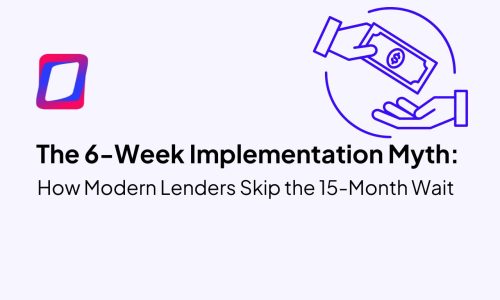The Benefits of Outsourced Data Analytics: Optimizing Business Insights
In today’s rapidly evolving business landscape, data has become the lifeblood of organizations, driving decision-making, uncovering market trends, and enhancing operational efficiency. As companies grapple with the vast volumes of data at their disposal, the significance of data analytics cannot be overstated. Outsourced data analytics, like GDS Link’s Modellica Analytics Pro, has emerged as a strategic solution for businesses seeking to harness the power of data without overwhelming their internal resources. In this article, we delve into the numerous advantages of outsourced data analytics, exploring how it can empower businesses to thrive in the digital age.
Understanding Outsourced Data Analytics
Outsourced data analytics involves collaborating with external experts to gather, process, analyze, and interpret data to extract meaningful insights. This approach allows companies to tap into specialized skills and cutting-edge technologies that they might not possess in-house. By outsourcing this critical function, businesses can focus on their core operations while benefiting from comprehensive data analysis.
The Benefits of Outsourced Data Analytics
1. Access to Specialized Expertise
Outsourced data analytics provides access to a pool of skilled professionals who are well-versed in data handling, statistical analysis, machine learning, and data visualization. These experts bring diverse perspectives and innovative strategies that can unearth hidden patterns within the data. This specialized expertise leads to more accurate insights and informed decision-making.
2. Cost-Effectiveness
Investing in the necessary infrastructure, software, and talent for in-house data analytics can be financially burdensome. Outsourcing eliminates these upfront costs and offers a more predictable pricing model. Companies can allocate resources efficiently and avoid unnecessary expenses, ultimately enhancing their bottom line.
3. Advanced Technologies
Outsourced data analytics providers are at the forefront of technological advancements. They leverage state-of-the-art tools and platforms to analyze data at scale, identify trends, and generate predictive models. Staying updated with these technologies can be challenging for internal teams, making outsourcing an attractive option.
4. Focus on Core Activities
By delegating data analytics to external experts, businesses free up their internal teams to concentrate on core activities that drive growth and innovation. This streamlined approach improves overall efficiency and accelerates the pace of development.
Implementing Successful Outsourced Data Analytics
1. Define Clear Objectives
Before outsourcing data analytics, it’s crucial to outline clear objectives and the specific insights you aim to derive. This clarity ensures that the outsourced team is aligned with your business goals and delivers results that are actionable and valuable.
2. Choose the Right Partner
Selecting the right outsourced data analytics provider is paramount. Evaluate their expertise, experience, and technological capabilities. Seek references, and assess their track record in delivering impactful insights to businesses similar to yours.
3. Collaborative Communication
Effective communication is key to a successful outsourcing partnership. Maintain regular contact with the external team, share updates on business priorities, and provide feedback. A collaborative approach fosters a sense of partnership and drives better outcomes.
Conclusion
Outsourced data analytics has emerged as a strategic enabler for businesses seeking to unlock the full potential of their data. The advantages, including access to expertise, cost-effectiveness, advanced technologies, and improved focus on core activities, make outsourcing an appealing choice. By partnering with the right provider and fostering collaborative communication, businesses can leverage data analytics to drive innovation and gain a competitive edge in their respective industries.
This is where GDS Link steps in, providing a comprehensive suite of AI-powered analytics tools and expertise to transform raw data into actionable insights and profitable outcomes.
GDS Link’s Modellica Analytics Pro, enables organizations to uncover untapped data opportunities, resulting in reduced exposure, increased response rates, heightened efficiency, and improved profits through the use of machine learning models. With extensive data repositories, open banking integration for 700+ standardized attributes, and access to 200+ third-party sources via their Data Exchange ecosystem, GDS Link empowers well-informed decisions. Our Analytics Team, composed of former CROs and experts, provides personalized consultation, backed by 50+ years of risk management expertise, enhancing relevant insights.
FAQs
Q1: What is outsourced data analytics?
Outsourced data analytics involves partnering with external experts to analyze and interpret data, uncovering valuable insights without straining internal resources.
Q2: How does outsourced data analytics save costs?
Outsourcing eliminates the need for investing in expensive data analytics infrastructure and talent, offering a more cost-effective approach.
Q3: What industries can benefit from outsourced data analytics?
Virtually any industry that deals with data can benefit from outsourced data analytics, including finance, healthcare, e-commerce, and manufacturing.
Q4: How do I ensure the outsourced analytics team understands my business needs?
Clear communication, well-defined objectives, and regular updates on business priorities will help ensure that the outsourced team is aligned with your needs.
Q5: Can outsourced data analytics keep my business data secure?
Yes, reputable outsourced data analytics providers have stringent data security measures in place to safeguard sensitive information.
Q6: How does GDS Link use open banking data?
GDS Link leverages open banking data from multiple API providers, converting it into standardized attributes for credit and fraud modeling.
Recent articles

The Secondary Decision Gap: Why Collections Costs Are Killing Your ROI
Read article
How a Multi-Lender Marketplace Scaled Embedded Finance and Stopped $300K in Fraud
Read article





